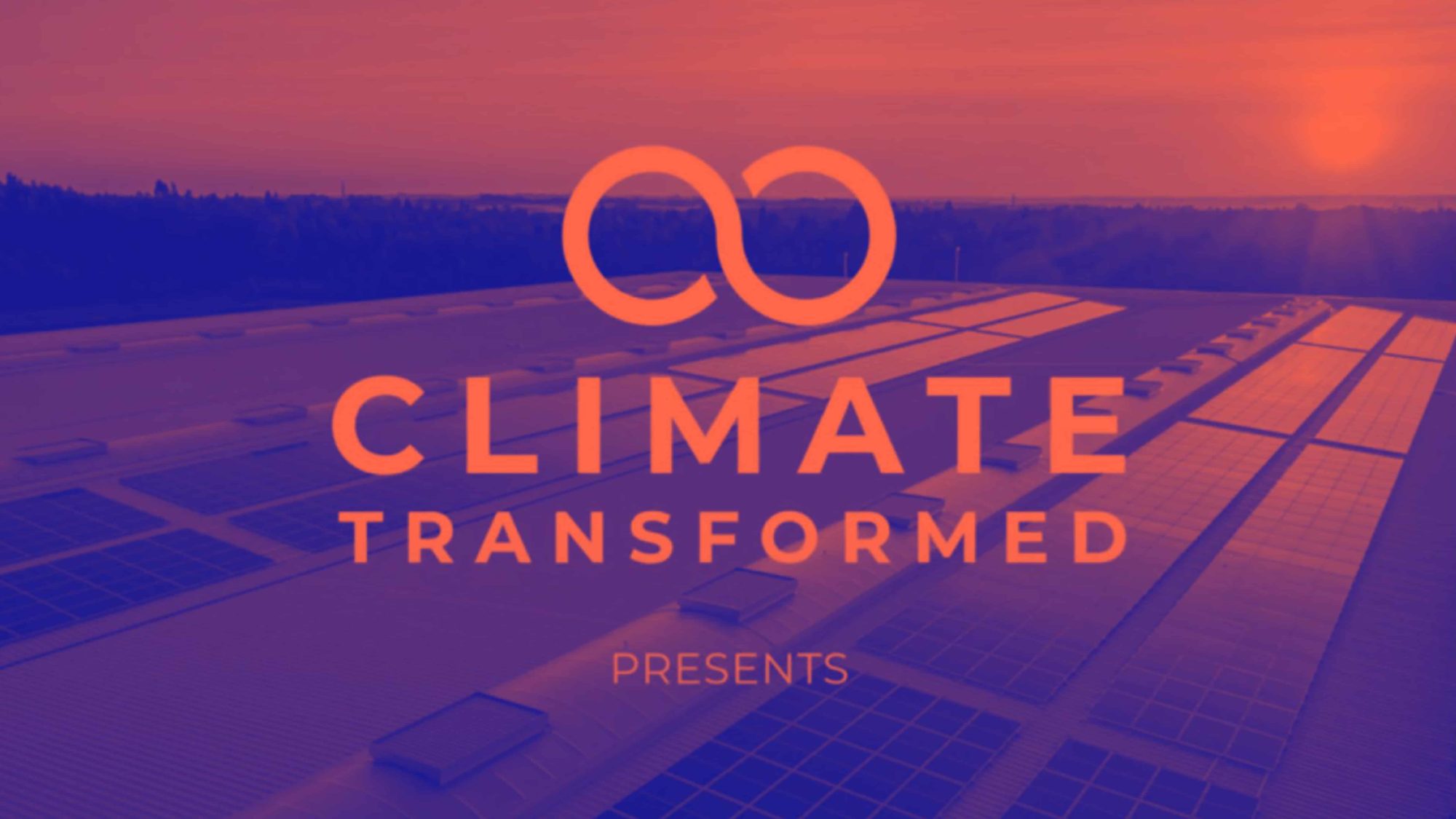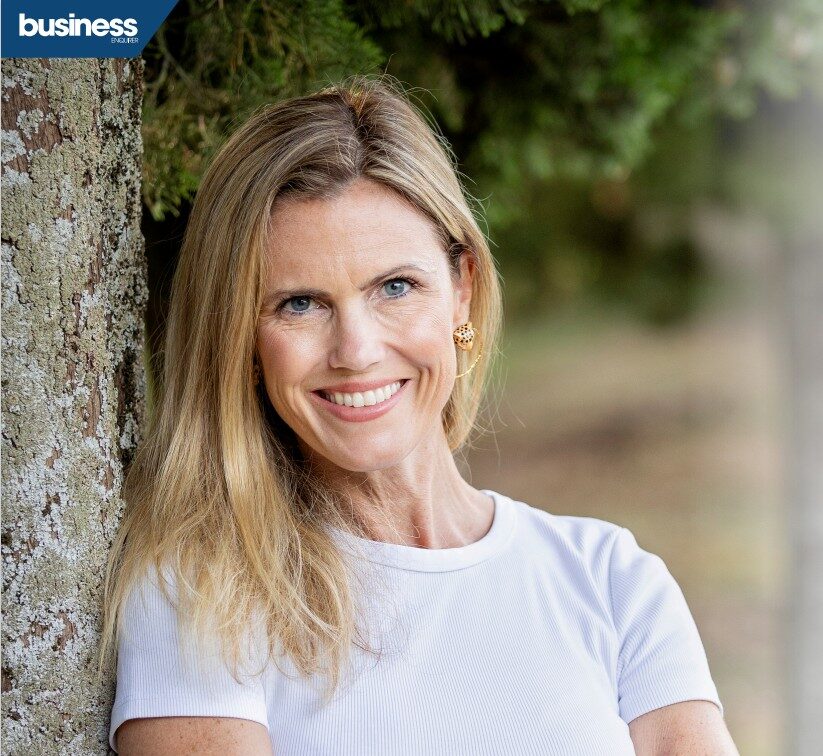Climate Transformed asks SCB’s Kevin McGeeney about his optimism for the future.
Kevin: Back in 2006 the world of low carbon commodities was very different. Our mission then, as now, is to promote a low carbon future. SCB as markets people, we do that by trying to lower the frictional cost of adopting a low carbon alternative.
By way of context, SCB operates on two tracks, one is to help companies and individuals achieve carbon neutrality through the purchase of offsets, or environmental attribution certificates or some other certificate to offset their emissions. And the second track is to assist companies achieve net zero by helping them remove something from their supply chain and replace it with a lower carbon alternative.
We’re markets people. We are always putting business together, putting deals together all across the world. Back in 2006 when we started, the first challenge was, there was no market for low carbon alternatives. No one knew or cared. We had to help develop the marketplace for certain low carbon alternatives and our first was European low-carbon transport fuel, biodiesel and ethanol, renewable diesel, for the first couple of years.
Creating a market for renewable energy consisted of a huge outreach to different organizations to show the benefits and to show how easy it could be, bring new customers into the market. I spoke at over 100 conferences in those early years, trying to help build the marketplace and it worked. We expanded through different products, different geographies and there’s been a change in the last two years where the wind is no longer blowing as strongly in our face. Society, the corporate world has really come around to carbon neutrality and net zero. We’re finding that we don’t get told to ‘take a hike’ on our outreach calls, as often. It’s still part of the business though, getting told.
To develop a low carbon market firstly involved some government support, so the road transport markets in the United States and Europe, they were heavily government supported and they are now. That really provided the boundaries in which we could help grow the market for the first ten years.
Other markets we’ve gone into recently are purely voluntary. In an arrangement activity, our move into battery materials, that’s not a government-supported market in the same way. But the growth in electronic vehicles (EVs) is stupendous and so the need for a functioning marketplace in battery materials exists.
On the voluntary carbon markets (VCM), our activities there – it’s in the name, it’s purely voluntary – but the corporate commitment to carbon neutrality is significant, and we see from certain court cases around the world that if a board or a Chair or a CEO of a company makes a commitment to carbon neutrality, then, if you buy a share you can be buying it on the basis of that commitment. So, it turns into a binding commitment.
Rupert: What’s SCB’s role in addressing climate change?
Kevin: We’re beating the drum. Anyone who wants to hedge or execute futures in cobalt or lithium please give us a call. It is an interesting marketplace. We know that the community believes in the EV story. If you believe in the EV story you have to believe in market efficiency for the individual parts. That’s not quite there yet.
Rupert: You set up the business back in 2006, what’s the landscape like now who are your main competitors?
Kevin: I’m glad to say we have strong competitors in every single aspect of our business. It’s not just SCB that sees the vision of this. I don’t think we face a single competitor in everything we do, our track of promoting a low carbon future and carbon neutrality and net zero is something unique, but in each individual part, in each individual geography, there’s stiff competition.
Rupert: what are some of your takeaways from being at the extremes of the Earth and different communities?
Kevin: Within SCB, we believe in the experience of climate change and the communities we’re trying to help. We have made trips to the North Pole, Antarctica, community school builds in Haiti, and we have one coming up in the early autumn 2022 in Malawi. Our goal is to allow everyone in the firm the opportunity to come and see the impact. The fragility of what we see when we go to these places is astonishing.
For example the North Pole was a wonderful experience I’m very honored to have been able to go. You might read that on average the ice thickness is 6 feet [1.8m]. And the key to that is ‘on average’ because you can be walking along and then, oh my, there is a massive crevasse. And, there’s another one. And then it’s all moving ice. So, hm, that ice sheet over there is just drifting away. It’s a desolate place and very fragile. Antarctica same thing. And other parts of the world, same thing. The sum of it is, we’re contributing to the degradation of the environment extremely quickly.
Rupert: What drove you in 2006 to go down this route? You’ve got a background in the banking sector, was there a catalyst back then?
Kevin: I spent about 15 years in investment banking. In 2002 I saw the collapse of the Larsen B ice shelf in Antarctica. And I didn’t have a context for it, I was focused on interest rates, foreign exchange and so on. But it stuck with me. In 2006 there was more media coverage. In part because of Al Gore’s film ‘An Inconvenient Truth’, it became inescapable and impossible to ignore.
As a markets person through and through, with my co-founders we saw that we’re not going to be able to turn this around without so many different communities and different people pulling their weight, and the thing we could do is help develop markets to promote adoption.
Rupert: How optimistic are you about the future?
Kevin: Extremely optimistic. I’m optimistic that we will achieve meaningful climate goals, we will address the crisis. However, that doesn’t mean we’re not also realistic and practical. I know that along the way we are going to see deeply traumatic climate-related events, and the ones I’m worried about most in the short term are ones where you have a climate event and that will be bad but it will trigger a social change. It will trigger migration, it will trigger a war. And we’ll see that is how the first gruesome effects of climate change will come to us in the future. Through individuals in a particular location or geography trying to get out of the trouble that climate change has put them in. We will see that, but ultimately I’m extremely optimistic that we will achieve meaningful goals.
coming soon: tactical trading and price discovery, 13 september, 2022.
Link to the event with ClimateTransformed




